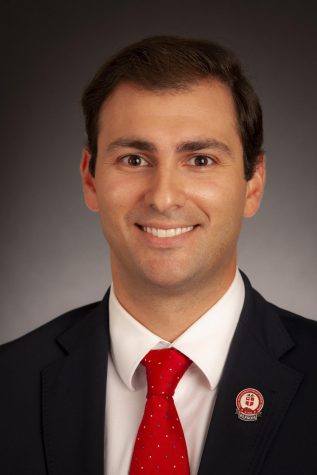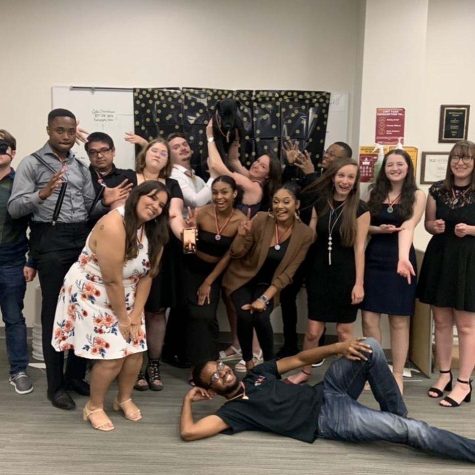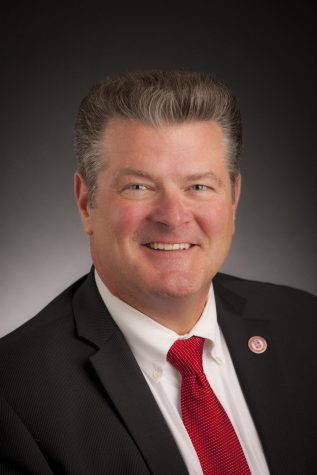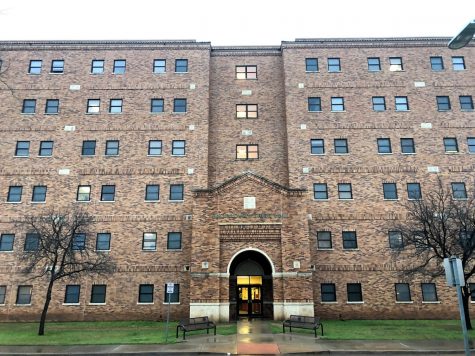Vote in the Nov. 6 congressional election
More stories from Herbert McCullough
November 4, 2014 was the first time I had voted in an election. It was the 2014 Congressional Election and 2014 Texas Gubernatorial Election. Walking to the voting booths, I felt like a legit boss. I even remembered finishing my ballot, feeling like a child that got a new toy from Toys “R” Us. Voting gave me a sense of civil duty. However, after the election, I was very heartbroken by the low turnout. In fact, voter turnout in that congregational election was only 38 percent, which was the lowest since 1942. I remembered looking at the turnout after election night somewhat baffled that the majority of the American public did not vote in this election, especially because of the negative political climate at the time.
Two years later, when I was taking a campaigns and election class, I remembered seeing the re-election rate of Congress compared to the approval rating of Congress. Despite Congress routinely having an approval rating well below 20 percent since 2010; however, over 90 percent of the members of Congress are re-elected since that time. In the 2014 Congressional election, Congress had an approval rating of 9 percent; however, more than 90 percent of members of Congress were re-elected that year. There was only one question I had — why?
The most obvious answer to the question is the simple fact that congressional mid-term elections tend to have lower voter turnout compared to presidential elections. In fact, millennial and Gen Z voters made up 13 percent of voters in the 2014 Congressional Election compared to the 19 percent in the presidential election. There is a lot of sentiment in which younger people assume that only the presidential elections matter. However, it is far from the case since, in many ways, Congress is just as powerful as the president; if not more, especially regarding public spending. I am sure that college students who depend on financial aid are well aware of the importance of public spending.
This year, Pew Research has conducted the number of eligible voters and they have found that with over 60 million millennials, millennials are catching up to baby boomers as the largest voting block in the United States. However, voter turnout among millennials in the 2016 Presidential Election was only 51 percent compared to 70 percent of baby boomers. This is why issues, such as social security and medicare, are of a higher priority to many congresspeople than affordable housing or education.
This lack of voter turnout is not limited to millennials. Hispanic Americans make up nearly 20 percent of the United States population as well as almost 40 percent of the Texas population. However, voter turnout among Hispanics in the last election was around 40 percent. Because of this, one can see why Hispanic Americans are among the most underrepresented in the House of Representatives. In fact, out of 535 congresspeople, there are only 30 voting members in the US Congressional Hispanic Caucus.
Despite this, there is still hope to increase voter turnout. This year in Texas there are now 15.7 million voters that are registered in the 2014 midterm election, a new record in Texas. This morning, I, along with a student of mine were registering people for the last day as well as passing out absentee voter requests in an American Government course. When I’ve asked how many people are registered to vote, all but one raised their hand. In fact, we were able to get some of those students were able to register to vote in Wichita County.
In conclusion, voting is important because it is how we share our voices. If you are not voting, your voice is not being heard. Because of this, congress fails to represent the interest of the American public and routinely have low approval ratings. However, unless the majority of Americans vote in congressional elections, those same congresspeople that do not represent the American public’s interest will still be re-elected and continue to not represent those interests. The most persuasive reason to vote can be summarized in a quote from comedian Rick Mercer, “Democracy is a tool. We either use it or lose it.”














Robert Pratt • Oct 16, 2018 at 2:24 PM
Op-Ed: Our problem: Entitlement to act from ignorance without shame
We often hear of what a great problem it is that our country is so divided or polarized in the polis. The term partisanship is often thrown around as if it is some new development that people choose sides on issues and are told its bad for the country.
Our problem today is not simply existence of partisanship or a polarized electorate as those things have existed at significant levels, sometimes higher than today, since before the country took root. What makes things bad today is the two-sided problem of ignorance and entitlement.
When ignorance is coupled with a false sense of self-authority and then added to a world of immediately shared information, whether right or wrong, good or bad information, you have a society in which things that are utterly wrong, unfounded, or just stupid are disseminated equally to information for which there has been at least a modicum of thought given to correctness or respectability.
Too many Americans across the spectrum have the get-a-trophy-for-participating mentality when it comes to politics, being told to “be involved,” “vote,” “let their voice be heard” all without the sense of obligation that one should have some mastery of the subject one is addressing before telling others how it should work.
An example is found in this lead sentence from a Rasmussen Reports national survey summary back in July: “Democrats are less likely to know what socialism is compared to other voters but have a much more favorable opinion of it.”
The poll showed 51% of Democrats having a “favorable impression of socialism” but 29% “of Democrats, however, incorrectly believe the individual has more power than the government in a socialist system, a view held by just 12% of Republicans and 17% of unaffiliated voters.”
That is emblematic of a large swath of the country standing in the public square rallying for an issue about which they are not only fully ignorant but of which they hold an opposite understanding from reality.
The solution is not to control speech, or the means of disseminating ideas, as the statist reflexively wish to do. The only solution which preserves individual liberty is to change the culture to one that ditches the idea of trophies for showing up, false senses of self-worth and -mastery, for one in which most people respect only reasoned and informed opinion.
Such is a culture, for example, in which a pretty-boy actor with no expertise beyond the stage is laughed at when he tries to tell us all how tax policy or immigration policy should work as opposed to being treated as an authority worthy of attention.
It is ignorance and the entitlement to act from ignorance without shame that plagues us.